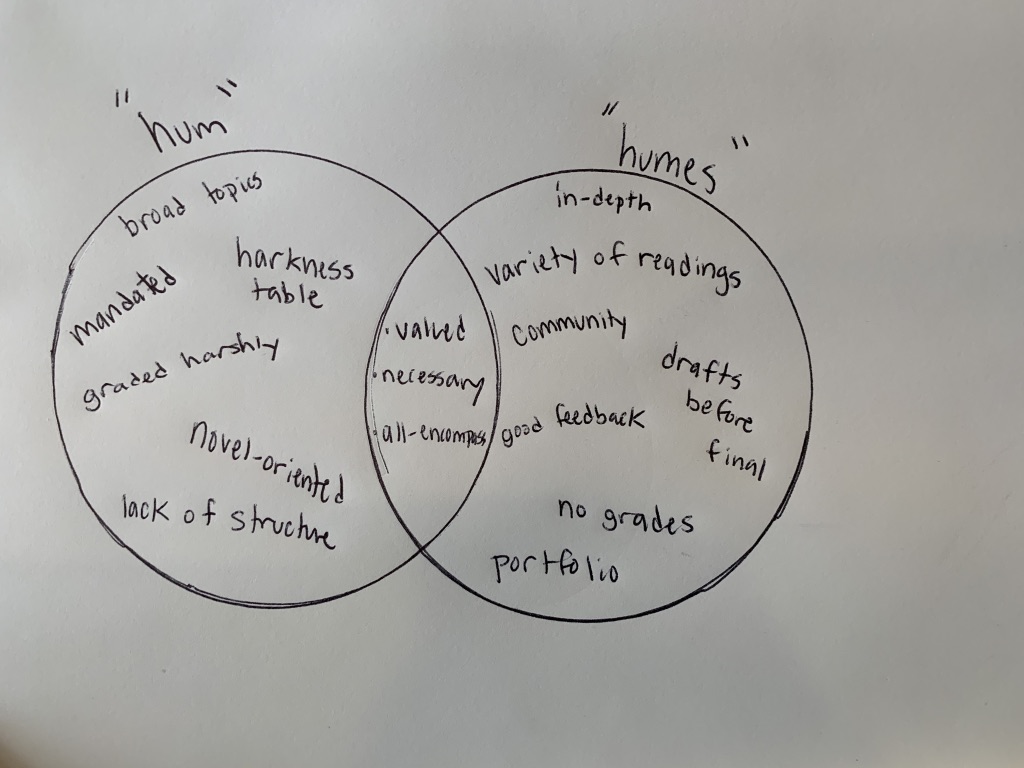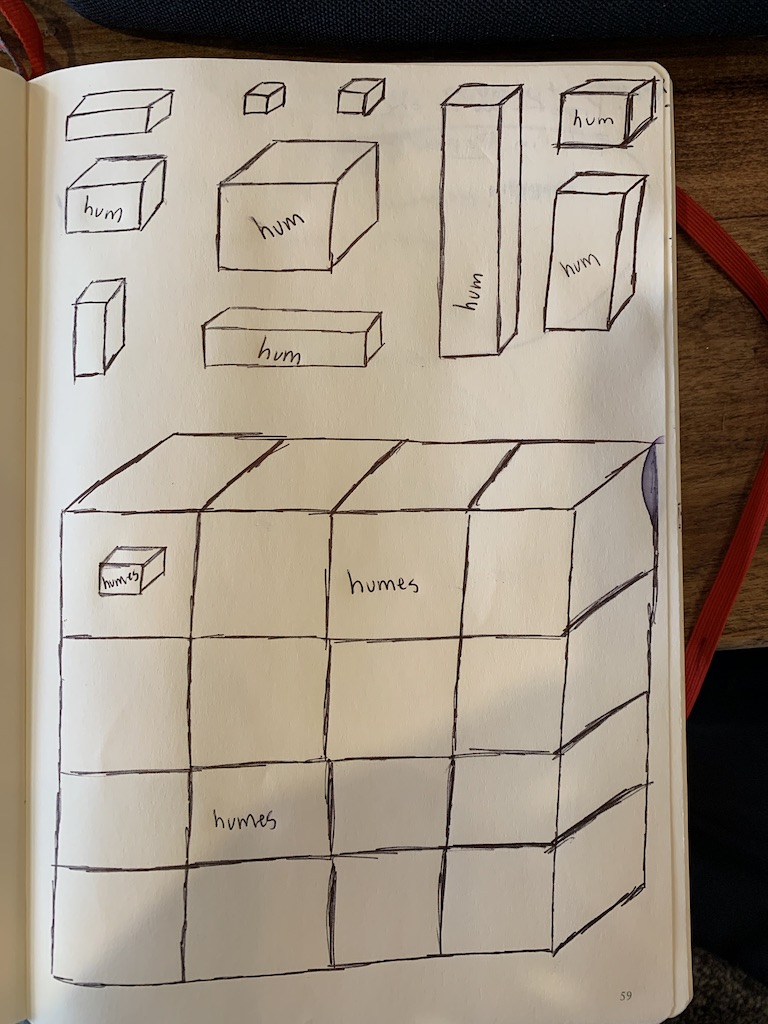WHAT IT MEANS TO BE HUMAN
(H/h)umanities
When I think of the humanities, my thoughts immediately go to my high school years and the three years of ‘hum’ that I was mandated to take. While it was beneficial to my development as a writer and improved my knowledge of world events, it does not compare to the chasmic depth that ‘humes’ offers me. With that said…
I think of Humanities as ‘humes’ and humanities as ‘hum’.
Here, a venn diagram is shown to give you a preview as to what I mean.

In other words, yes, they’re probably more similar than they are different, but the key difference is the depth of the topics that each program demonstrates.
In Prof. Robb’s Unit, we were given a book on the entirety of the scientific revolution to show us the vastness of discoveries and inventions at that time. Professor Tamura’s Unit had us deconstruct images from the Rwandan Genocide and connect those to her overarching topic of death. Prof. Wills had the excellent idea of starting the class off with a ‘tune from the time’, which introduced some humesters to artists they’ve never heard before, and Prof. Quillen describeed storytelling in a way that changed the meaning of the importance of history for me. All this to say that there is ,perhaps, no other class Davidson offers that gives students this level of both variety and depth. It’s fitting then that my ‘capital H’ Humanities belongs to Humes and not ‘hum’.
I like to think of my definition structurally. My visualization is best represented like so, and my reasoning for it goes like this:

As previously described there are two factors that affect my choice of ‘H’ and ‘h’, variety and depth. While hum offered me variety, we did not repeat papers to improve them. We did not hypothezise on topics and allow for outside questions, and we certainly weren’t able to connect these ideas to previous units we had done. These cubes represent each topic, with the variety represented but not necessarily depth.
Humes on the other hand, is an all-encompassing honeycomb of sorts. It connects units together and challenges us to be able to bridge topics together while simultaneously improve writing by using peers.